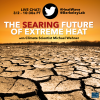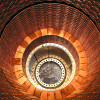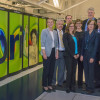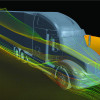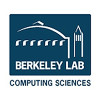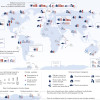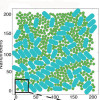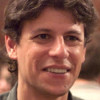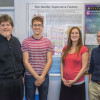News
New Study Details the Searing Future of Extreme Heat
Heat waves that typically strike once every 20 years could become yearly events across 60 percent of Earth's land surface by 2075, if greenhouse gas emissions continue unchecked.
If stringent emissions-reductions measures are put in place, however, these extreme heat events could be reduced significantly. These are among the findings of a new study from Berkeley Lab and NCAR. Read More »
Updated Workflows for New LHC
To deal with the new data deluge from a recently upgraded Large Hadron Collider (LHC), researchers working on one of the facility's largest experiments—ATLAS—are relying on updated workflow management tools developed primarily by a group of researchers at the Berkeley Lab. Read More »
DOE Announces First ‘HPC for Manufacturing’ Industry Partnerships
The U.S. Department of Energy (DOE) has announced $3 million for 10 new projects that will enable private-sector companies to use high-performance computing resources at DOE's national laboratories to tackle major manufacturing challenges. Read More »
Media Advisory: DOE to Announce 10 HPC Projects to Advance U.S. Manufacturing and Energy Technology
On a Feb. 17 media call, David Danielson, Assistant Secretary for Energy Efficiency and Renewable Energy (EERE), and Mark Johnson, Director of EERE’s Advanced Manufacturing Office will unveil new industry partners selected to receive $3 million in funding from the U.S. Department of Energy's High Performance Computing for Manufacturing Program at a Berkeley Lab press conference. Read More »
New Employee Profiles: February 2016
Introducing Brandon Cook, Mathieu Lobet, William Arndt, Stephen Leak and Dongeun Lee. Read More »
Assessing the Impact of Human-Induced Climate Change
Researchers at Berkeley Lab and Potsdam Institute for Climate Impact Research develop and apply new method to determine whether specific climate impacts can be traced to human-caused emissions.
Read More »
Seeing the Big Picture in Photosynthetic Light Harvesting
Researchers have created the first computational model that simulates the light-harvesting activity of the thousands of antenna proteins that would be interacting in the chloroplast of an actual leaf. Read More »
ESnet, CENIC Announce Joint Cybersecurity Initiative
CRD's Sean Peisert will be director of the new CENIC/ESnet initiative to jointly develop cybersecurity strategies and research projects. Peisert, who was also recently named as the chief cybersecurity strategist for CENIC, has worked extensively in computer security research and development. Read More »
Supernova Twins: Making Standard Candles More Standard Than Ever
By employing a new modeling method, members of the international Nearby Supernova Factory based at Berkeley Lab were able to dramatically reduce the scatter in supernova brightnesses. Read More »
Internet Pioneer Vint Cerf to Give Jan. 27 CS Distinguished Lecture
Vinton G. Cerf, who is vice president and Chief Internet Evangelist for Google and widely known as one of the "Fathers of the Internet," will give a Computing Sciences Distinguished Lecture on "Safety, Security and Privacy in the Internet of Things," at 1:30 p.m. Wednesday, Jan. 27, in the Bldg. 50 auditorium. Read More »







 Instagram
Instagram YouTube
YouTube